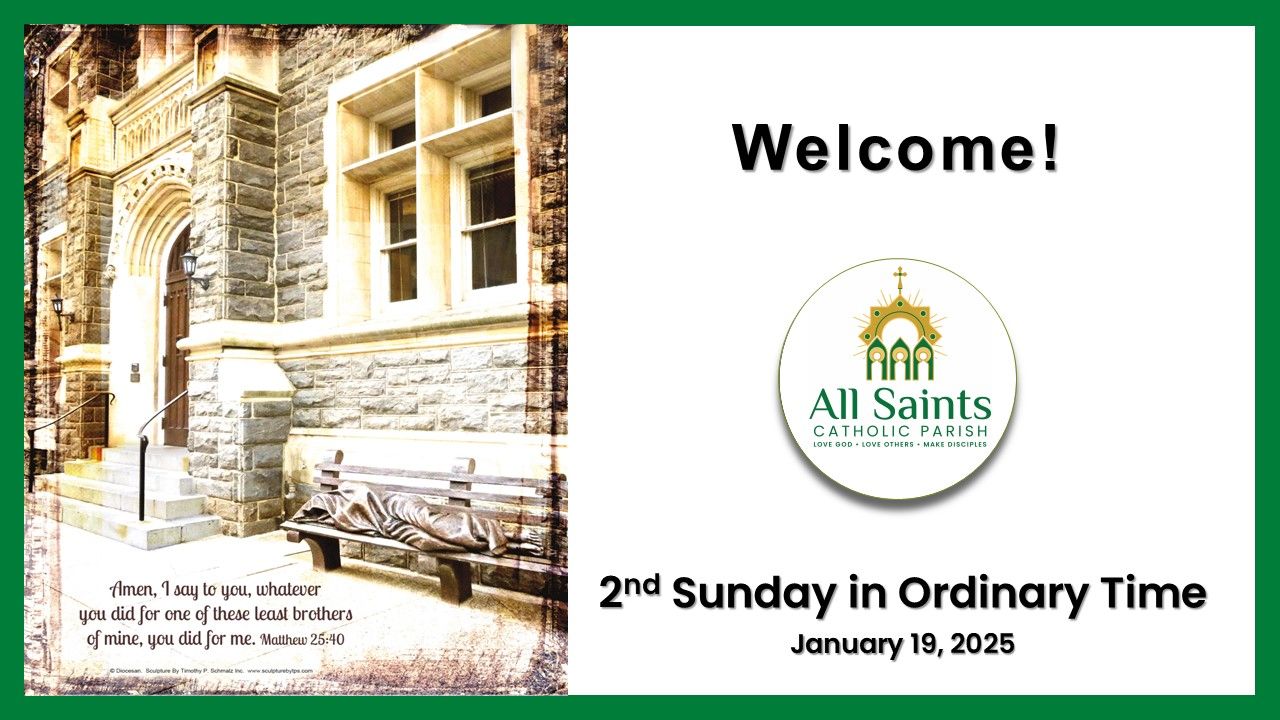18th Sunday in Ordinary Time
18th Sunday in Ordinary Time
Ecclesiastes 1:2; 2:21-23; Colossians 3:1-5, 9-11; Luke 12:13-21
I think you will agree with me that most of us like to be in control. We like to shape the world around us and steer things in the direction we choose. For instance.
· How many of us feel the need to choose the social lives of our family and friends -, where we’re going to eat, where we’re going to go on vacation?
· How many of us want to be the spouse who sets the rules (and punishments) for our children?
· How many of us want to get our way at work, or even on the road?
Yes, we do like to be in control. No doubt about that. And we probably act that way for a number of good reasons. But the biggest reason might be a simple one --- because we think we can protect ourselves from bad things, from the things we don’t want, and from people acting in ways we don’t like. Put simply --- our need to “control” might at its core simply be a misguided need to try to ensure our “happiness”. Well, I say “misguided” because deep down, we know things don’t really work that way. Disappointments find us. Sorrow finds us. Tragedy hits us. Failure finds us!!!
“Vanity of vanities . . ..! All things are vanity……For what profit comes ….from all the toil an anxiety of heart”
So begins the Book of Ecclesiastes. Is the author of today’s first reading a pessimist or a realist? ‘Vanity of vanities, all is vanity’ might suggest that all our efforts are in the end unstable and futile – a breath of wind blowing dust around. For those of you who don’t know --- this book is not a “warm and fuzzy” one. Its message isn’t that “everything is going to be wonderful”. It’s much more in line with what we know from personal experience. And that means it’s kind of a tough read. So, what is the human author driving at?
Let’s go straight to our Gospel reading from Luke in which Jesus tells a parable showing the fleeting nature of the material things of this world and the fleeting nature of our individual lives. This parable about storing large amounts of grain for the future recalls the story of Joseph and the Pharoah in ancient Egypt (Genesis 41). Where Joseph is praised for his wisdom to store up grain for the seven lean years to come, the rich man in today’s gospel is criticized for what sound like the same thing. Why?
The fundamental difference is in the purpose of these people’s actions. Joseph, interpreting Pharaoh’s dream, advised the entire country to store grain during years of plenty so that people all over the country, and the wider region would not starve during the years of famine. The greedy rich man, however, only stores his harvest so that he himself could live off it for years, so he could do nothing but “rest, eat, drink, and be merry!” (Luke 12:19). Joseph saved hundreds of thousands of people with the stored grain across the country. The rich fool only wanted to save himself. And he sadly failed.
Dear friends, life is more relational than material. We do not exist as isolated individuals. The rich man in the parable is condemned as a fool precisely because he isolates himself from human relationships, and relationship with God, which alone can make us unhappy. Earthly things are good, but they can never satisfy the human heart. St Augustine clearly put it “Our hearts are restless until they rest in you”. Jesus did not condemn wealth as such, but the attitude of mind that wealth consists in accumulating stuff, rather than forming loving relationships, especially with God, who alone can satisfy our longings.
As Christians we are called to live this life as gateway to eternity- our true home is not this passing earth, but the new heavens and the new earth. Everything belongs to God, and we are stewards or caretakers who are expected to use the gifts in service to one another.
Questions to reflect on for the week:
Are you in control of your possessions, gifts and talents or are they controlling you?
What are you storing in your heart?” Is it unforgiveness, habitual sinfulness, or bitterness?
May we become rich in what matters to God so that our treasure will last forever!

Homilies











